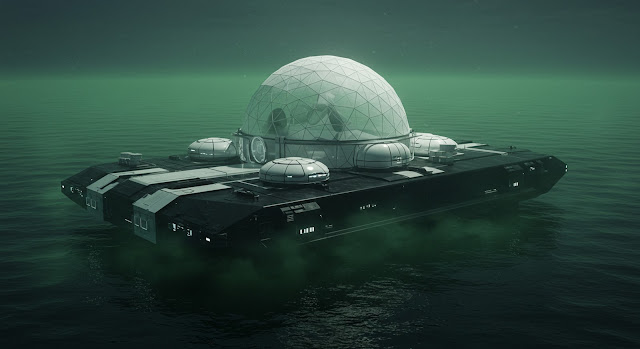| Generated by Google Gemini Pro text-to-video AI software, powered by Veo 3 |
I won’t get into too many historical details, because if you’re interested in
such information, you would probably prefer to hear it on the tour, and if
this stuff bores you, I doubt there’s anything I could say to change your
mind. The Kingdom of Aksum existed between the first and seventh centuries in
the common era. It was a powerful and meaningful region of international trade
at the time. In fact, they relied so heavily on being in the center of
everything that, when power shifted to other cultures, Aksum couldn’t keep up.
Spoiler alert, they ultimately collapsed over the course of many years due to
emigration to more fertile lands, war, and plague. All the usual suspects.
Unlike other civilizations, however, you can’t really point to a single event,
or even a short period of time, which served as the turning point. It just
gradually declined in importance. Its ancestors are still alive today, whether
or not they are aware of, or place any significant emphasis, on this
long-forgotten heritage. There is a lot that we don’t know about life in the
Kingdom, and of course, it changed over the centuries. The lands where it once
stood are still there, and I believe there are a few arcologies in the region
still. The memory of it, however, has unfortunately faded, and that’s thanks
to a much stronger focus on European culture and history. For many of our
ancestors, the nations of Africa were backwards, uncultured, and irrelevant.
How many were there who didn’t know—or couldn’t admit—that various regions of
Africa served as both the seed of human life, and the heart of civilization?
We’re all from there, and so I would argue that the Kingdom of Aksum is
everyone’s story. In the spirit of this reality, I urge you to educate
yourself on its history, even if it doesn’t mean going to visit this dome. I
still definitely recommend coming here. It’s a great replica of what the
region would have looked like back then. You can’t find it in the simulations.
Trust me, I checked the virtual stacks. It’s not that it wouldn’t be possible,
but people are more concerned with replicating the
Firefly / Serenity star system, and The Flying Forest, which is just a
regular forest where you feel intoxicated. I shouldn’t judge. I should just be
grateful that it exists in any form. I learned so much here, and I know you
will too if you just give it a chance.


















